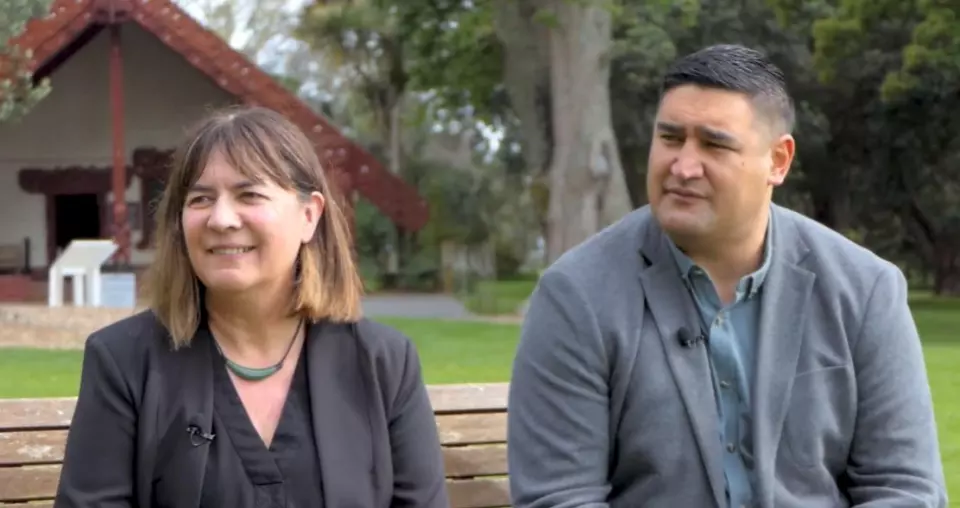Collaboration and culture offer strength in turbulent times.
Despite facing a multitude of challenges and experiencing historically low short-term positivity, Māori business leaders are leaning into their cultural strengths and affinity to collaborate in order to navigate current economic difficulties - while looking ahead with determination to make the most of the prevailing circumstances.
That’s according to BDO Māori Business Sector Leader Angela Edwards, who notes the latest BDO Māori Business Sector Report reveals respondents are facing setbacks in confidence and business performance.
“Despite that, what’s heartening is that Māori business owners and executives are looking to the future with positivity. They are seeing green shoots in their lines of business, bolstered by macro-economic factors, such as interest rates coming down and inflation coming under control,” says Edwards.
‘Kaha Ake Tātou Kotahi – Stronger Together’ is the sixth edition of the BDO Pūrongo Pakihi Māori (BDO Māori Business Sector Report), and shares insights from business leaders across Aotearoa. Edwards, a BDO director working out of Kerikeri in Northland, says the report polled more than 150 respondents identifying as Māori or New Zealanders of Māori descent, while also being responsible for leading or managing a business.
Leading the report is the finding that 48% of Māori business leaders are positive about their business performance. This is the lowest this metric has been since its introduction in the 2022 report. “We work with a lot of iwi organisations, many of which are directly seeing the impact of government cutbacks and contract reductions,” says Edwards.
While acknowledging the necessity for reined in government spending owing to historically high debt levels, Edwards says seeing the impact at the coalface is jarring. “It hurts, and it does disproportionately affect Māori.
“Combined with the general slowdown in the economy, this is affecting their ability to provide services at prior levels – and that has a real impact on people receiving those services.”
A related finding is that wellbeing is reported as lower than it has been in prior reports, with the WHO-5 score for Māori leaders falling to 64. The World Health Organisation’s internationally recognised WHO-5 Index measures wellbeing over the last two-week period, and Edwards says this is one of this metric’s lowest measures since tracking commenced in May 2022.
While that may appear to paint a bleak picture, she says the opposite is true with a sense of getting on with it, rather than getting down on it. This is clear when contrasting these findings against the 63% of respondents expecting to feel positive about their overall business performance all or most of the time within six months.
“What’s really fascinating is that the more Māori the business is, the more positive the leader. Those from businesses that are more than 50% Māori-owned feel more positive about their financial performance and overall business performance, now and in the future, than the wider survey group,” Edwards reveals.
In a video discussion with journalist Mike McRoberts, Edwards suggested the higher level of positivity may stem from strong cultural foundations, including whānau and community ties, that support their operations.
Leaders from these majority Māori-owned businesses report that 62% feel positive about their current overall business performance, and 47% feel positive about their current financial performance. In the wider survey group, 48% feel positive about their overall business performance and 33% about their financial performance.
“We’re seeing a resurgence and positive feeling about Māoridom, renewed vigour in the commitment to Te Reo, and a new generation coming through with a keen youth component,” she adds. Edwards explains that through releasing the report, BDO hopes to build on this, creating a voice and further understanding for an important, yet rarely researched sector of Aotearoa’s economy. A key feature of the report is also a range of practical tohutohu (business tips) to help businesses navigate current market conditions.
When asked about the business performance metrics they’re feeling most and least positive about, Māori business leaders had much in common with other sectors, ranking economic factors, cash flow and financial performance as their most pressing issues.
Edwards addresses the relative importance of purpose versus profit when pressed on the differences between Māori-owned businesses and other New Zealand businesses. “What we see across many organisations working in multiple verticals is an ethos very similar to not-for-profits, where it’s Kaupapa-driven, where whānau is closely involved, where the environment and community is seen as a partner,” she explains.
The study confirms that Māori business leaders see collaboration and partnering as key to achieving their business goals, with 89% saying it’s either somewhat or very important; Edwards adds that Māori business leaders measure success by having a happy and well whānau. However, the brain drain is real and the reality of reduced circumstances may interfere with this process: Many Māori business leaders report having skills lacking in their business, with 31% reporting a shortage of creative skills and experience.
“Unfortunately, people are going offshore to find work, but business leaders want to keep their people here as much as possible,” Edwards observes.
Despite the challenges, she’s buoyed by the can-do attitude evident in the 2024 BDO Māori Business Sector Report, which also tracks a return to long-term planning after the necessary pivot to short-term survival through the Covid years. “The future is bright. Māori business is set for success with the strong values to carry through the good times and the bad. There’s vision, determination and long-term thinking along with a great deal of optimism, and that underpins enduring success.”
For more key findings and practical business tips, view the full BDO Māori Business Sector Report 2024.






